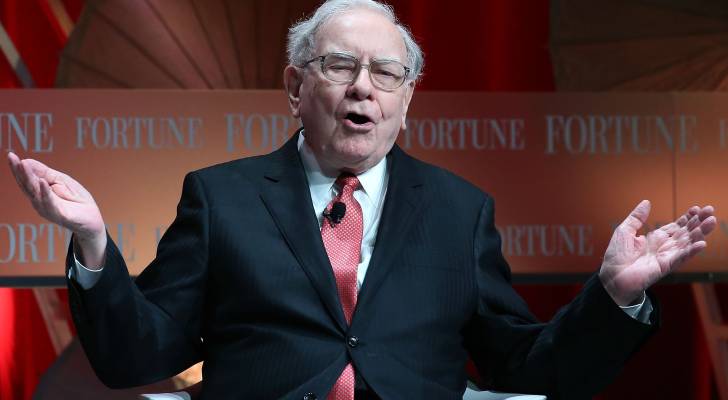
With trade tensions rising, sweeping tariffs looming and recession fears rattling Wall Street, stocks have been on a wild ride. Watching a portfolio sink into the red can be nerve-wracking, but investing legend Warren Buffett has long warned against reacting emotionally when markets take a dive.
“Some people should not own stocks at all because they just get too upset with price fluctuations,” Buffet told CNBC’s Becky Quick. “If you’re going to do dumb things because a stock goes down, you shouldn’t own a stock at all.”
Quick pressed him: “What are dumb things? Selling a stock because it goes down?”
Buffett didn’t hesitate: “Yeah, selling a stock because it goes down. I mean, you know, if you buy your house at $20,000 and somebody comes along the next day and says, ‘I’ll pay you $15,000,’ you don’t sell it because the quote’s $15,000. You look at the house or whatever it may be. But some people are not actually emotionally or psychologically fit to own stocks.”
Buffett’s message rings especially true in today’s economic climate. With markets whipsawed by tariff uncertainty and broader economic jitters, knee-jerk reactions could turn temporary losses into permanent ones. Instead of treating stocks like lottery tickets, Buffett urges investors to think like business owners — focusing on long-term value rather than short-term noise.
After all, as he famously said during the 2008 financial crisis, “A simple rule dictates my buying: be fearful when others are greedy, and be greedy when others are fearful.”
And while not all assets are created equal, Buffett has shared a surprisingly simple way to tell which ones are worth owning — and which ones aren’t.
Buffett’s simple test — and the assets that pass with flying colors
In a 2018 interview with Yahoo Finance, Buffett explained that there are two types of things people buy: one qualifies as a real investment — the other, not so much.
The test to tell the difference is simple: If trading were banned for a period of time, would the asset still hold up?
“If you buy something — a farm, an apartment, house or an interest in a business — and look to the asset itself to determine whether you’ve done something — what the farm produces, what the business earns, and so on — you don’t really care whether the stock market’s open,” Buffett said. “You look at the investment itself to deliver the return to you.”
Simply put, the kinds of assets Buffett sees as real investments produce returns on their own. They don’t need an open market — or a future buyer — to be worthwhile.
Rental real estate
Buffett has often pointed to real estate — especially rental properties — as a textbook example of a productive, income-generating investment.
In 2022, Buffett remarked that if you offered him “1% of all the apartment houses in the country” for $25 billion, he would “write you a check.”
Why? Because regardless of what’s happening in the broader economy, people still need a place to live and apartments can consistently produce rent money.
‘Interest in a business’ — and Buffett’s favorite investment for everyday Canadians
Buffett says that when you buy an “interest in a business” and focus on what the business earns — rather than daily market moves — “you don’t really care whether the stock market’s open.” And it’s no surprise he feels that way.
His company, Berkshire Hathaway, has delivered staggering returns over the decades — through bull and bear markets — by owning stakes in high-quality, cash-generating businesses.
But of course, not all businesses are created equal — so how do you pick the right ones?
Buffett’s solution is refreshingly simple: own an S&P 500 index fund. These funds offer broad exposure to the S&P 500 — the top companies listed on U.S. stock exchanges.
Such a straightforward approach gives investors instant diversification without the need for constant monitoring or active trading.
“In my view, for most people, the best thing to do is own the S&P 500 index fund,” Buffett famously stated.
Sources
1. CNBC: Warren Buffett: Some People Should Not Own Stocks (Feb 26, 2018)
2. Yahoo Finance: How Warren Buffett decides if something is a good investment (Feb 11, 2019)
2. CNBC: Warren Buffett gives his most expansive explanation for why he doesn’t believe in bitcoin (April 30, 2022)
This article provides information only and should not be construed as advice. It is provided without warranty of any kind.